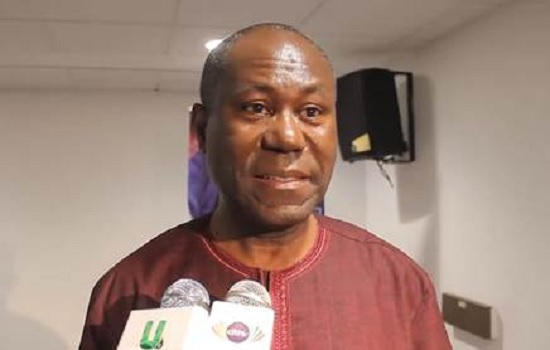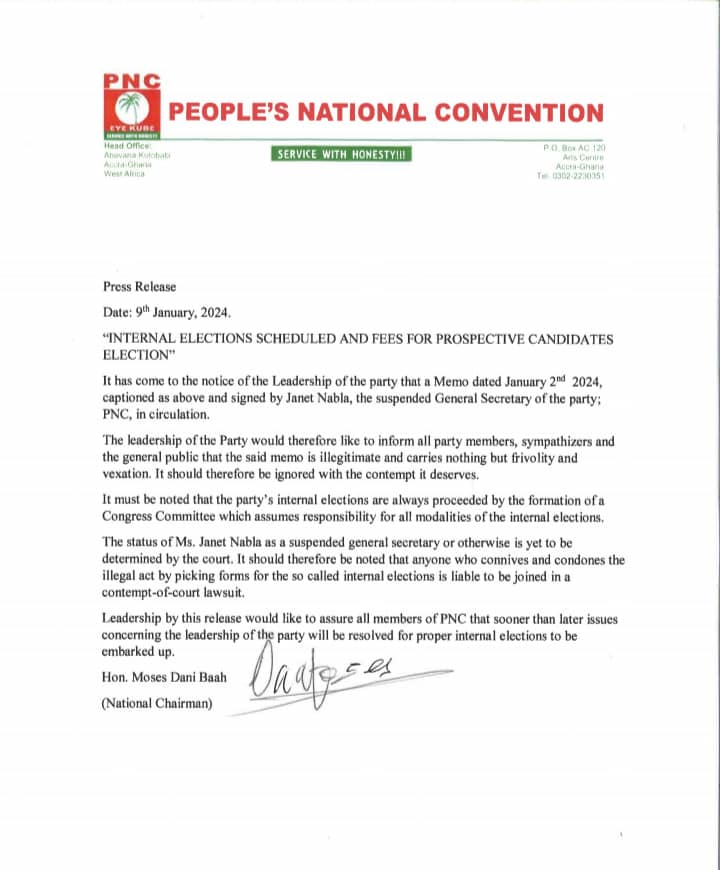
In Ghana, our corruption problem isn’t a parade of uniquely villainous souls, it’s a leaky bucket of a system that practically begs to be exploited.
From Kwabena Adu-Boahene’s alleged GHS 49 million heist to Cecilia Dapaah’s eyebrow-raising $1 million cash stash, the evidence is glaring.
We’re not battling a shortage of moral fibre; we’re wrestling with a framework so flimsy it’s a wonder more haven’t dipped their hands in the till. The data backs this up, and the stories paint a picture so vivid you’d laugh if it weren’t so infuriating.
The brutal truth is that without robust systems to slam the door on corruption, we’re all just one cushy position away from becoming the next headline.
The ease of the heist: Adu-Boahene, Dapaah, and the open buffet
Take Kwabena Adu-Boahene, arrested on 20 March 2025 at Kotoka International Airport, accused of siphoning GHS 49 million from the National Signals Bureau (NSB).
This wasn’t a mastermind cracking a vault, it was a stroll through an unlocked gate. A 2020 cybersecurity contract with an Israeli firm, ISC Holdings Ltd., saw GHS 9.5 million paid out legitimately, only for the rest to allegedly vanish into personal accounts via BNC Communications Bureau Limited, a company he co-owns with his wife.
How? No real-time audits, no mandatory public contract disclosures, no red flags until it was too late. Kwabena Adu-Boahene didn’t need a genius IQ.
The new Attorney-General, Office Special Prosecutor (OSP) and Economic and Organised Crime Office (EOCO) are scrambling now, but where were the systems to catch corruption and diversion of this scale at the starting line?

Then there’s Cecilia Dapaah, former Sanitation Minister, whose house helps pinched over $1 million in cash from her home in July 2023. A million dollars—in cash—at a public official’s residence!
The OSP sniffed corruption, froze her assets, but a High Court in October 2024 tossed their case, citing insufficient evidence. Why was it so easy for her to amass that fortune unnoticed? No enforced asset declaration laws with teeth, no routine checks on public servants’ wealth. The OSP’s 2024 appeal drags on, but the damage is done: a system that can’t spot a mountain of cash under a minister’s roof is a system begging to be gamed.
Look at the National Service Scheme (NSS) scandal too GHS 343.2 million allegedly diverted in 2024 by registering ghost workers, including Kenyans, to pad payouts. Or COCOBOD’s GHS 15 million fertilizer fiasco in 2023, now under OSP scrutiny for overpriced rubbish and offshore kickbacks.
These aren’t feats of genius; they’re the fruits of porous procurement, shoddy payroll controls, and a justice system that moves like a tortoise on sedatives.
The Auditor-General’s 2023 report flagged GHS 17.4 billion in irregularities, GHS 2.5 billion from payroll alone, because internal controls are a joke. Ghana’s Corruption Perceptions Index score of 42/100 in 2024, per Transparency International, isn’t a moral indictment, it’s a systemic one.
Systems, not sermons: The evidence is overwhelming
The numbers don’t lie. Afrobarometer’s 2024 survey shows 77% of us think corruption’s worse than ever, and 58% say culprits walk free. Why? Weak oversight, underfunded watchdogs, and a judiciary that’s a bottleneck.
The OSP’s 2023 report on Charles Adu Boahen called out “influence peddling” enabled by lax rules on official dealings.
Globally, the World Bank’s 2023 Governance Indicators rank us at 51.42/100 for controlling corruption, trailing Rwanda (73.11) or Singapore (98.11), where systems like mandatory wealth tracking and swift courts choke corruption at birth.

Singapore’s Corrupt Practices Investigation Bureau boasts a 90% conviction rate, not because its people are saints, but because its systems are ironclad. Ghana’s OSP can barely keep up.
Acemoglu and Robinson’s Why Nations Fail nails it: weak “extractive” institutions, like ours, breed corruption. Without accountability, think whistleblower shields or fast prosecutions, opportunity trumps morality every time. Our high-profile cases of corruption all thrived in a system that didn’t stop them.
The public’s cry and the system’s deaf ear
Ghanaians aren’t blind to this mess. Scroll through any social media platforms, and the fury’s palpable.
Ghana here they respect sakora fine gentlemen then tag rasta guys as criminals meanwhile those in suits are the real thieves.
— ? (@toxicliving_) March 25, 2025
The public outcry matches the data, 77% of us see corruption spiralling, and 58% reckon the guilty stroll free. Yet, the system’s response? A shrug, a probe, a yawn.
We’re shouting into a void, and the void’s cashing cheques.
You’d find the average Ghanaian screaming on social media about Kenyans on our NSS payroll, while graduates begged for postings. Farmers raged as cocoa yields tanked due to dodgy fertilizers. These aren’t isolated outrages, they’re symptoms of a system so lax it’s a buffet for the bold. No biometric payroll checks, no public contract dashboards, no swift courts. We’re not asking for angels; we’re begging for locks on the doors.
We’re all one job away: The Ghanaian temptation
And the kicker is most of us would do the same given half a chance. This isn’t cynicism; it’s human nature under a broken system. Fisman and Miguel’s 2007 study on diplomats dodging parking fines showed even “upright” folks bend rules when enforcement’s weak.
In Ghana, where 64% of us tell Afrobarometer the government’s anti-corruption fight is a sham, the message is clear: why stay honest when the system winks at theft?
I’ve seen it up close. I always tell the story of one of my former finance manager, a wiry chap with a calculator for a brain, who once quipped in a random conversation, “I’m training to be a GRA commissioner so I can take my share too!”
We laughed, but the jest hid a truth: he’d seen colleagues at the Ghana Revenue Authority skim taxes and take “kickbacks” to cancel penalties with impunity, thanks to discretionary loopholes and no audits. My guy wasn’t being evil; he was being pragmatic.
Put any of us in Kwabena’s NSB chair or Cecilia’s ministerial office, with millions flowing and no guardrails, and the temptation would whisper loud. Our culture venerates integrity, Nkrumah’s ghost still haunts us with it, but without systems to back it, we’re kidding ourselves.
We prize ethical leaders, yet social media posts after every scandal cry “they’re all the same.” Why? Because the system doesn’t punish, it enables. Give us a shot at the pie, and enough of us will bake it ourselves.
Why it’s so easy: A blueprint for plunder
Let’s break down how ridiculously simple it is to loot in Ghana:
A cybersecurity contract, a shell company, and a system blind to red flags, that’s all it took for Adu-Boahene’s alleged scheme. No mandatory e-procurement flagged the overpayment; no real-time audit caught the siphon.
Cecilia Dapaah’s cash hoard? No law forced her to declare it meaningfully, no agency checked her lifestyle against her salary.
The NSS’s ghost workers? A payroll system without cross-verification let millions bleed out.
Our systems are sieves, not shields. Our scandals aren’t hard to pull off; they’re handed on a platter.
The fix: Build a fortress, not a pulpit
Ghana doesn’t need more moral crusades; we need a system overhaul. Here’s what actually works:
- Digitise procurement completely: Let’s take a learning from Estonia’s e-system which apparently cuts corruption by making every bid public and trackable, Ghana’s paper trails are a thief’s dream even with the “digitised” PPA system. Every contract should be visible online in real-time, with automatic flags for unusual patterns or pricing. The Ghana Electronic Procurement System (GHANEPS) exists but needs mandatory use across all agencies with no exceptions.
- Fund anti-corruption agencies properly: Singapore’s CPIB gets whatever resources it needs to function independently. We should tie the OSP and EOCO budgets to a percentage of recovered assets, creating incentive for efficiency while ensuring adequate resources.
- Enforce asset declarations with consequences: Officials must prove their wealth or lose it, like Singapore does. Current declarations are a tick-box exercise with no verification. We need lifestyle audits for all senior officials, with unexplained wealth automatically triggering investigations. The Assets Declaration Act needs teeth, make the declarations public and verify them.
- Reform the judiciary for speed: Stephen Opuni’s case dragging since 2018 is a national embarrassment. Create specialized anti-corruption courts with deadlines for case completion. Kenya established such courts and saw conviction rates rise and case durations fall. Justice delayed is impunity granted.
- Implement biometric verification across payroll systems: The Auditor-General clawed back GHS 31.5 million in 2025 from ghost salaries, imagine if that system had been in place a decade ago. Require biometric verification for all public sector employees with regular audit sweeps.
We don’t need saints; we need steel. Weak institutions rot nations, ours are rotting us. Fix them, and the temptation fades. Leave them, and my finance manager’s “training” might land him a commissioner’s chair; or a cell.
Ghana deserves better than this circus. Until we build systems that say “no” so we don’t have to, we’ll be stuck in this farce, cheering arrests like Adu-Boahene’s, only to watch the next scandal bloom.
We’re not uniquely corrupt; we’re uniquely exposed.
The post The brutal truth: We’re not mad about corruption in Ghana—we’re just jealous it’s not our turn yet first appeared on 3News.
Read Full Story



















Facebook
Twitter
Pinterest
Instagram
Google+
YouTube
LinkedIn
RSS